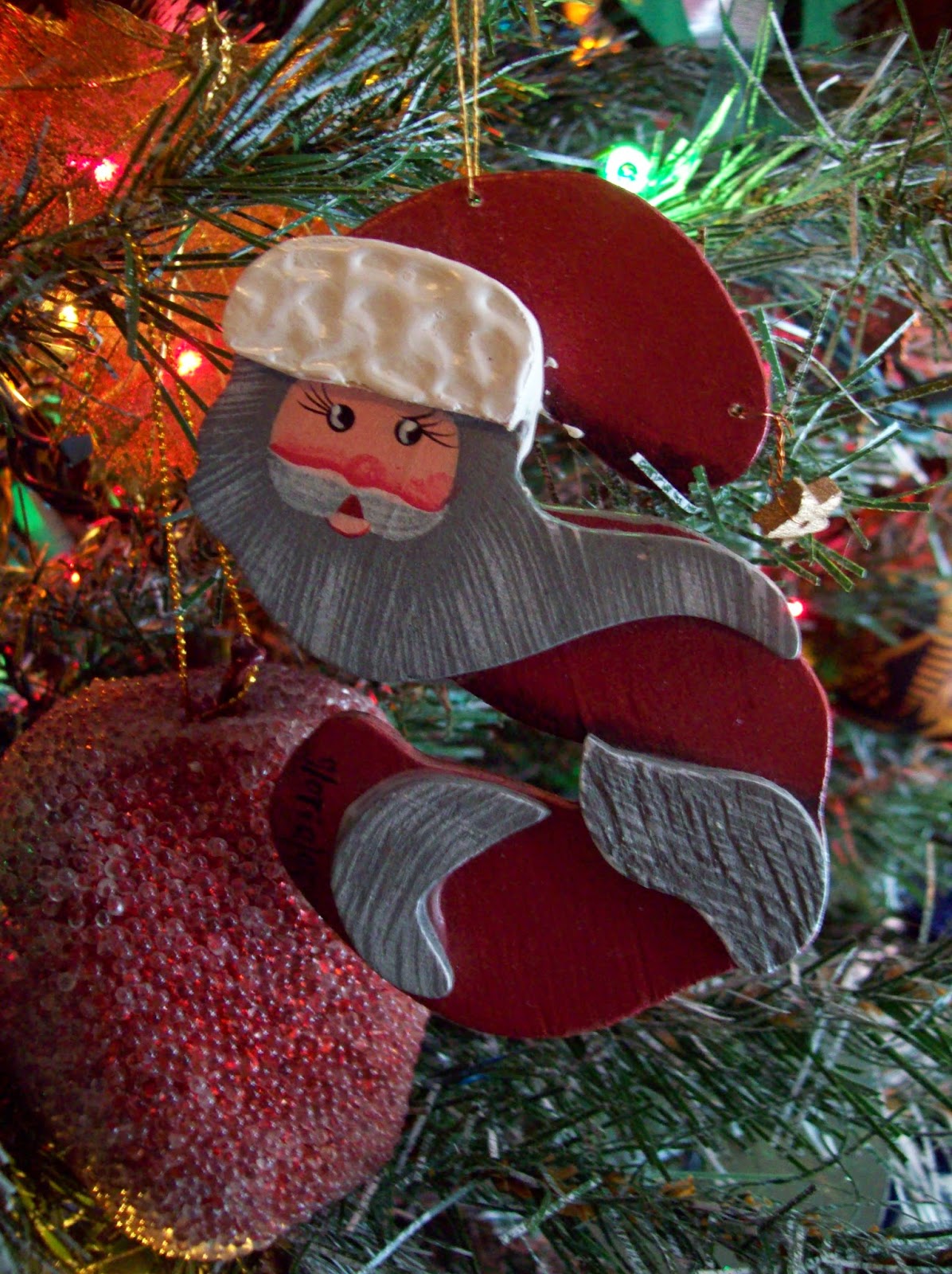
My dad has an old metal toolbox,
inside which lies my great-grandpa Royal Levant Eaton’s wallet, a true leather
billfold. Inside that wallet, I found a small scrap of paper folded up. It was
a page from “Our America Engagement Calendar for 1956”. On the other side of it
was a brief holiday journal written out in green ink by my great-grandma Hattie
Eva Smith.
By the end of 1956, Hattie had been
widowed for twenty-five years. My great-grandpa Roy was a prison guard. His
son, my grandpa Mark, was sixteen years old was his father was injured during a
prison riot and later died. Hattie was left with three children- Helen,
Dorothy, and Mark- and had to get a job. She went to school for nursing.
In the journal bit she tucked away,
it was Christmas time for her and it is Christmas time again. I corrected her major
spelling and grammar errors, but otherwise, I’d like you to meet my
great-grandma Hattie, in her own words. She mentions her daughter Helen, who shared
an apartment with her. It’s worth noting that Helen was rescued by her brother
and his brother-in-law from an extremely abusive relationship.
December, Sunday 25: Snow all gone and it is
Christmas day. Went to Mark’s for the day. Had a good time. Phil’s so cute (that’s my dad!). They sure had a nice
Christmas, so glad. They deserve it. Robert and Laura were there for dinner. Mr.
and Mrs. Rauson [Ransom, Mark's boss] came in to call.
December, Monday 26: Dorothy came after us and we
went down there and had a lovely time. Jack sure had a good time. I know I did.
Helen did too and looked better in a short while after we got there.
December, Tuesday 27: Cold day. Helen went to
library. Very quiet here. Looked over my xmas presents. Read. Took a nap. Washed
a few clothes. They are like boards they froze so stiff. A bit tired today. So
much excitement!
December, Wednesday 28: Lovely day. Dorothy came for
a little while. Bertha wanted time to go to the movies. We went to Bob’s for
evening and had a good time. They sure had a big Christmas. Wish I could do for
mine
December, Thursday 29: Went to the movies to see Heidi
also Vanishing American. Helen was mad when she found out Bertha paid for it. She
wasn’t too nice about it but so it goes. She is so sore at life.
December, Friday 30: Cold. A snow squall this
morning. My check came this morning. Will pay the rent 46.00 tonight. Church
$10. Also $8 for Miss Schafer for underclothes; slips. Helen’s so depressed over
(?)el(?)(?).
December, Saturday 31: This is the end of the year. Hope
next year will not be so hard. Have done the best I could. What more can anyone
do? Good bye, old year. We hope for better times.
At this
year comes to an end, I feel a kinship with this woman I have never met. After
I read the small diary to my father, he talked fondly of her and described the
layout of her small apartment to me. I live in my own fading apartment and have
spent a year barely getting by, trying to focus on the joy that we are still getting
by.
In difficult times, the love of the
people in my life is my sunshine. I wonder if it was the same for Grandma
Hattie. Because in that respect I am fully blessed. So I’ll borrow her words,
her silent prayer, as I greet 2015. This prayer is for me, for my family, and
for the world around me.
“Good bye, old year. We hope for
better times.”













































